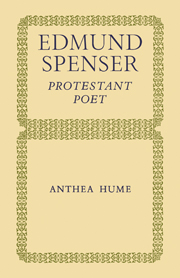Summary
The romantic epic which explores the moral virtues is also, of course, the nationalistic poem which asserts the greatness of Britain and the British monarchy. The moral virtues of the Queen are celebrated in the proems and mirrored in the fiction by Gloriana, Belphoebe, Mercilla and sometimes other figures; but perhaps the most fundamental compliment paid to her by Spenser was that of making Arthur, the most illustrious of her alleged ancestors, the supreme hero of a poem which would ultimately have had twelve other protagonists. Virgil and Ariosto had shown how a patron could be complimented through a narrative of the achievements of a mythical or fictional ancestor. Spenser the Protestant nationalist resolved to engage with the story of Arthur, but he did so, I shall suggest, in a remarkably considered and original way. My argument will be that his attitude to the Arthurian material led directly to his invention of the distinction between Britons and Elves, a subject of great interest and one which I am in any case under an obligation to tackle because in Chapter 4 I challenged the widely held view that Elves are essentially non-Christian, when I stated that the Elf Guy on must be regarded as a Christian knight.
Before going any further I should perhaps summarise and briefly comment on twentieth-century opinions about the Briton/Elf distinction, starting with Greenlaw's claim that ‘By Fairy Spenser means Welsh, or, more accurately, Tudor, as distinguished from the general term British.’
- Type
- Chapter
- Information
- Edmund SpenserProtestant Poet, pp. 145 - 161Publisher: Cambridge University PressPrint publication year: 1984



